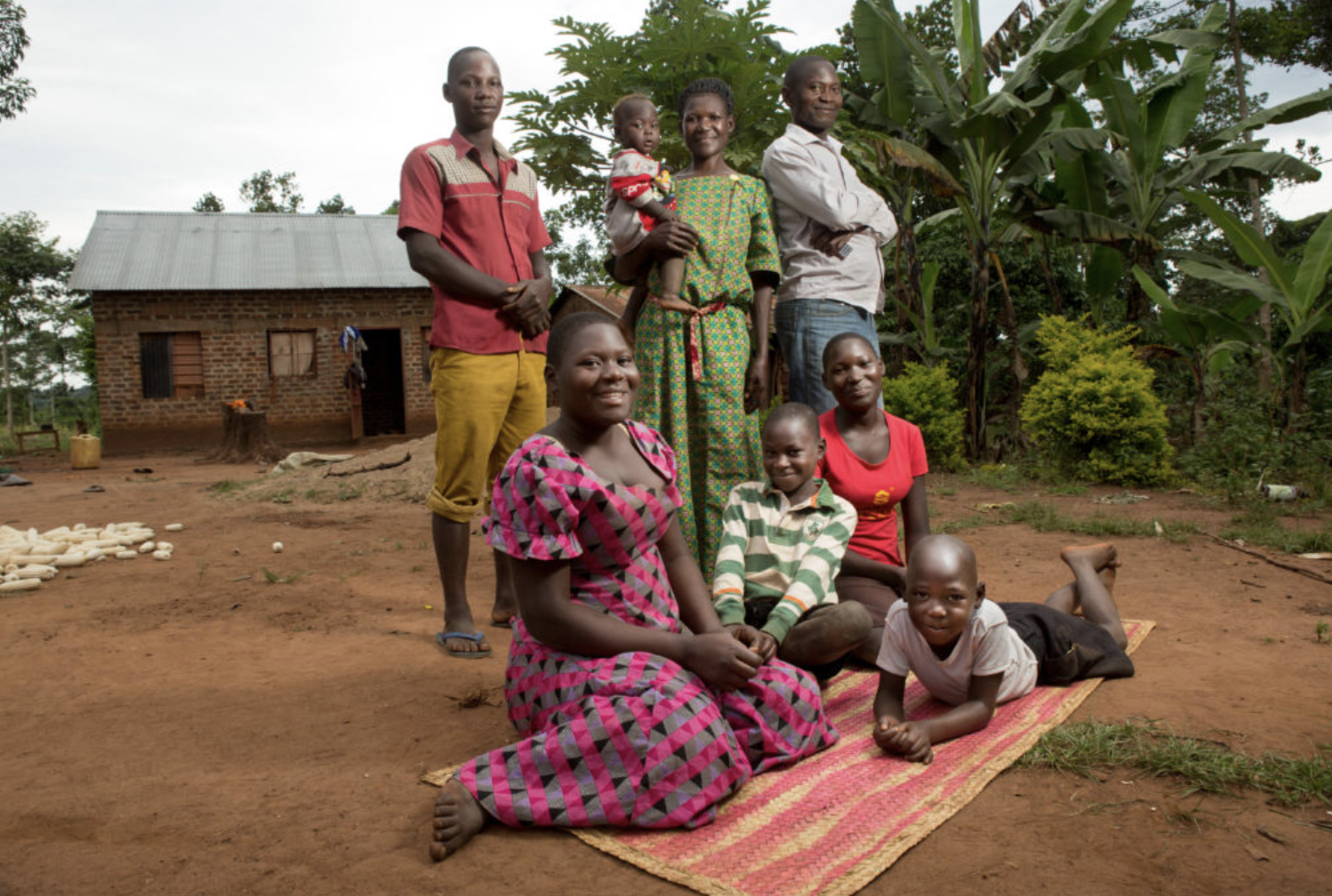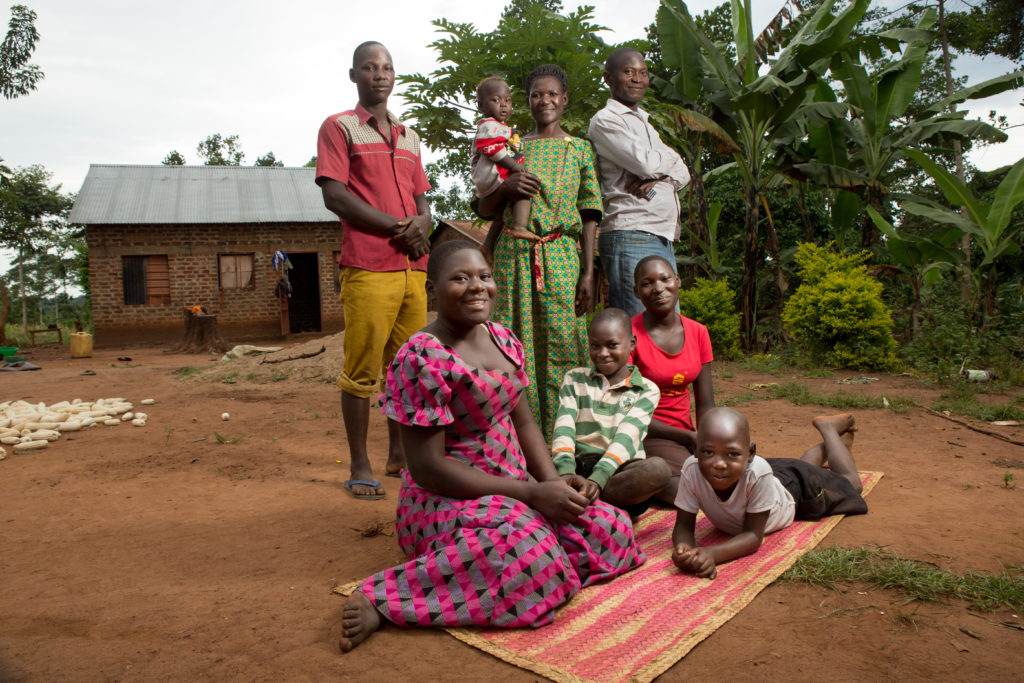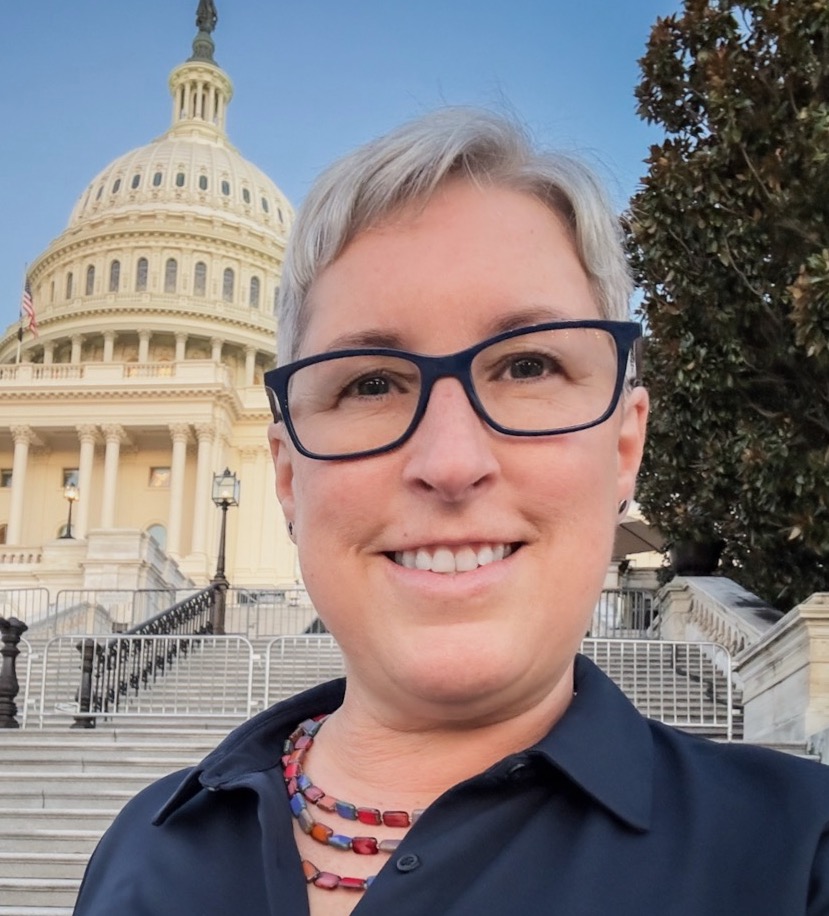

When Sulite Kanyegezi, a community health volunteer in Lumuli village of Eastern Uganda, offered to introduce us to families in the area who have been impacted by vaccine-preventable disease, we jumped at the chance. Community health workers like Sulite are neighborhood volunteers who connect families in remote locations with healthcare, including the lifesaving vaccines their children need to stay healthy. He is a trusted, vital resource in his village as he informs families when children should be vaccinated, when a new vaccine is available, when there is an infectious disease outbreak in the area, and helps them get to the health clinic when they need that assistance.
“It makes me happy to see the children so much healthier than they were before vaccines arrived in the village.”
– Sulite Kanyegezi
Sulite brought us to the home of John Kisege and his wife Jennifer Nakyengo on the outskirts of the village. The family makes do subsistence farming, growing maize and “g-nuts” or groundnuts. John and Jennifer have seven children, ranging in age from seven months to 20 years old. On the day of our visit, we met Betty, 18, Prossy, 16, Ronnie, 11, Tabitha, 8, Erisa 5, and Michael, 7 months.
When John and Jennifer welcomed their first two children into the world, they lived in a very remote location near the Nile River. Because the closest health clinic was so far away, they were not able to get the children vaccinated. When their daughter, Betty (pictured in a pink dress), was a year old, her legs began to swell from polio. The virus left her with one paralyzed leg, but the damage could have been far worse.
After this frightening incident, John and Jennifer moved the family to Lumuli, a village with a school and a health clinic that regularly receives vaccine supplies. The family had to begin their farm anew, but it was well worth it.
Now, all seven of their children are up-to-date on vaccines and protected from infectious diseases.
In fact, their 7-month-old, Michael, was just vaccinated against measles and rotavirus (which causes severe diarrheal disease) because Sulite warned the family that there was is a measles outbreak in the area.
Throughout our time in Uganda, I would ask children, “Now that you are vaccinated against diseases and will stay healthy, what are your dreams for your future? What do you think you might want to do when you grow up?” Not surprisingly, the children almost always answered, “doctor,” “nurse,” or “teacher” as these are the respected people they encounter in their villages on a regular basis.
John and Jennifer’s children answered similarly. Betty, a very studious young lady who has already reached 10th grade, said, “I want to be a nurse.” Her mother added, “If it wasn’t for the nurses who treated her when she contracted polio, she would not have fared so well.” Prossy (pictured sitting in a red shirt) explained, “I want to be a doctor because I want to treat people so they stay in good health.” Ronnie (pictured in a white-and-green striped shirt) reported, “I love my teacher and want to be like him.” When I got to 5-year-old, Erisa (pictured in a white shirt and black shorts), however, the answer was different.
Erisa thought for a minute and responded, “I want to be a pilot.”
Because the family lives in a small, remote village in Uganda, with dirt roads and no vehicle to take them very far from the village, we were all quite surprised at his answer! I inquired further, “Erisa, may I ask if you’ve ever been near an airport or airplane?” He quickly said, “no.” “Then how is it you have this dream of wanting to be a pilot?” I will never forget his answer:
“Sometimes, I see planes in the sky and I want to be up there.”
I want nothing more than for Erisa to fulfill his dream and, now that he is protected from infectious diseases and will likely grow up to become a healthy man, he has that chance.
Oh, and Daddy wants Michael, the 7-month old, to become a lawyer.


